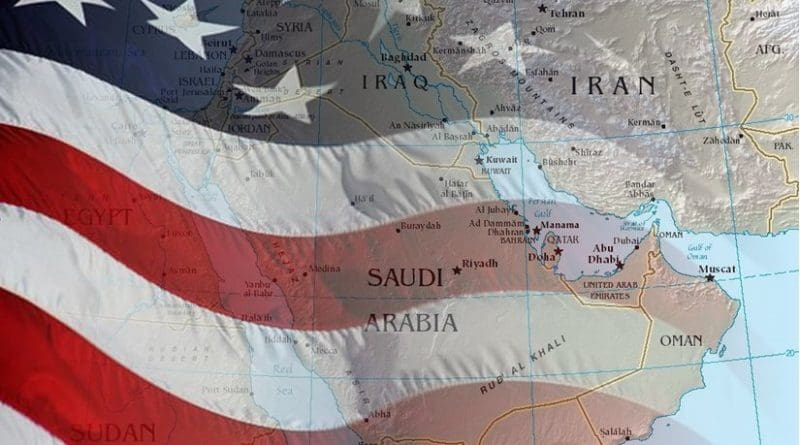The Great Power Play Of The Greater Middle East – Analysis
The right wing and harsh Mahmoud Ahmadinejad, the sixth president of Iran, gave the West a hard time from 2005 to 2013. During his two presidential terms he denied the Shoah and threatened to wipe Israel off the world map. Since Rouhani took over, the Iranian establishment has cloned him in the image of Khatami, a liberal and a man of peace and stability, in appearance of course.
However, the question is:
- Is Rouhani the master of his own destiny or just the voice of his concealed masters?
- Will he be able to walk the whole mile freely or just few yards on a leash?
- Will he always be under the scrutiny of the Persian Big Brother or not?
Iran A Crafty Player
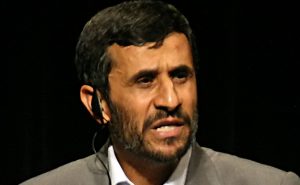
So far the Iranian establishment has been playing the game of politics in a very crafty manner by alternating between a hardline president and a liberal one, at times threatening the West and its interests in the region and at others calling for cooperation and stability. As a result, since the Khomeini revolution of 1978-79, Iran has stayed permanently in the news.
The world remembers vividly when hardline students, including Ahmadinejad, took 52 American diplomats hostage in their own embassy referred to in Persian as “Conquest of the American Spy Den”, for 444 days (November 4, 1979 to January 20, 1981) and humiliated America by using the American flag to carry trash or as a door mat to wipe their feet. But, then, on the day Ronald Reagan, who promised to take a hard stance on this “rogue” country, was sworn in as president, Iran released the hostages and started a new chapter of its relations with the United States.
Will Iran tone down its aggressiveness in the Middle East, now that the Republican Donald Trump is the President of the United States?
Iran is undoubtedly a great game player or rather an astute gambler. They (“Its leadership”?) know(s) how to play, and on which number to put their chips for maximum gain, and so far they have been truly lucky.
But now, the leadership realizes that Syria, one of Iran’s forward defense outposts is done damned. Even if the regime is not toppled, it is going to be weak forever especially after using chemical weapons on its own people, and Iran’s other ally Hezbollah has lost lots of credibility in the Arab World as result of its military support of the Bachar regime in Syria. Iranian leaders have come to the hard conclusion that they could easily be the next target of Uncle Sam, especially now with the populist Trump at the helm of the US.
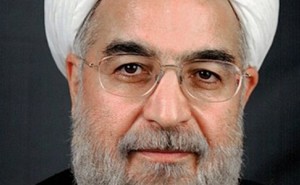
Does this mean that Iran is about to give up its nuclear program? The answer is, no. But they are, maybe, ready to give guarantees to the Trump administration that they will threaten neither Israel nor the Gulf states and maybe even allow some democracy intra-muros. Is this truly possible? Nobody knows and only time will tell.
If the United States accepts such a possible change of heart, which is only an Iranian realpolitik stance that means it is recognizing the legitimacy of Iran to possess nuclear weapons and become a full member of the nuclear club. Would the US do that and let down Israel and the Gulf States?
In answer, to this intriguing question, there are two possible scenarios to consider:
Scenario 1:
The United States accepts reluctantly the Iranian drive to possess nuclear weapons, as long as these weapons are not to be used to threaten the stability of the neighboring countries i.e. Israel and the Gulf States.

The US might stomach such a hard fact because it has realized that striking Iran will create more problems in the Greater Middle East than it will solve. The Iranian nuclear sites are spread all over the country, and if the US and Israel decide to strike Iran from the air and the sea they will not, probably, be able to achieve much. Iran can retaliate by striking back at Israel, as well as Saudi Arabia and Bahrain, and by blockading the Strait of Hormuz and sinking a couple of oil tankers to create an environmental crisis.
If the United States wants to avoid this scenario it has to deliver a surprise crippling blow to Iran that would destroy all its military capabilities and plunge the chain of command into chaos and disarray. This is technically impossible because Iran has several chains of command of the army proper, the Guardians of the Revolution and even the Bassidj “popular army” made up of three million volunteers.
Of course if the US really planned to deliver one such a deadly blow, it would not talk any further — but just act. Instead, we know that the US will not risk such an act because the consequences would be dire for Israel. Iran and Hezbollah would direct all of their firepower towards Israel, and human causalities could be very high given that its population is concentrated on a small strip of land and therefore it does not have the geographical depth that Iran has.
Does Israel have a fail-proof shield against such attacks, nobody knows?
Scenario 2:
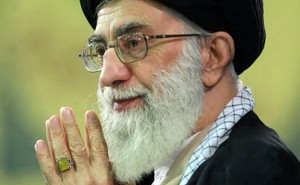
America has made it clear, in the sternest terms possible, that it would not allow Iran to obtain nuclear weapons and it is ready to go to war for this, and war would mean the total obliteration of the theocratic and autocratic regime and its replacement by a democratic government, once far all. However, the US has expressed its readiness to deal with the present Tehran regime if it accepts to disarm peacefully, allowing it an honorable exit door. The US and its allies have lifted the embargo and are seemingly entertaining normal relations with the Ayatollahs with the hope this will persuade the leadership to take the path of peaceful disarmament.
Realizing that they have no alternative whatsoever and making a good show of Persian pragmatism, the Iranians have accepted the American face-saving offer to disarm with an important proviso that would allow the regime to keep its nuclear program for civilian use under the scrutiny of the International Atomic Energy Agency (IAEA).
All of this is normal, but there is only one thing that has incensed the Arab countries and that is the American tacit offer to Iran, under Obama, to play the role of a regional power in the so-called Greater Middle East, which is the most controversial part of the whole package. However, things might go a different path now with Trump, who has promised during his campaign to deal harshly with the regime of the Ayatollahs.
Saudi Anger
Prior to the Arab Spring, Egypt played the role of the regional power in the Middle East seconded by Saudi Arabia that happily acted as the sole banker of this arrangement. But with Egypt gone to the dogs, Saudi Arabia aspired to become the regional power and with its money and oil, it believed it could have a say in the region’s affairs, but money alone does not guarantee regional power, it is military might that does and Egypt had it in the recent past
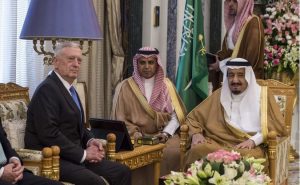
Despite being America’s staunchest ally in the Arab world (offering, when requested, to increase oil production to reduce OPEC market tyranny, financing its wars in the region against Saddam and his regime, putting OIC in the service of American interests in the Muslim world, financing the war against Bachar al- Assad, etc) Saudi Arabia feels that it has been taken for granted by America because it was dumped it the minute the US sensed an overture from Tehran. So much for friendship and strategic alliance.
The Saudi hopes of becoming a regional power and sole spokesman for the Muslim world have been dashed on the rock of American realpolitik. Does this prove that superpowers do not have definite friends but only definite interests?
International politics is not only a matter of amity and gain; it is also a question of stability and peace. America wants peace in a region that is volatile and that has been sitting on a powder keg for far too long.
But all in all, Saudi Arabia has clearly expressed its dissatisfaction with the American change of heart by refusing to assume its seat in the prestigious UN Security Council for which it was elected for a two-year term in 2013.
“Saudi Arabia … is refraining from taking membership of the UN Security Council until it has reformed so it can effectively and practically perform its duties and discharge its responsibilities in maintaining international security and peace,” said a Foreign Ministry statement issued on state media.
This statement justifies the rejection of the much-sought seat by UN member countries by arguing clearly that:
“Work mechanisms and double-standards on the Security Council prevent it from carrying out its duties and assuming its responsibilities in keeping world peace.”
For the Jerusalem Post of October18, 2013, Saudi Arabia is directing the refusal of this seat to its American ally:
“Saudi Arabia, in an unprecedented show of anger at the failure of the international community to end the war in Syria and act on other Middle East issues, said on Friday it would not take up its seat on the United Nations Security Council. The kingdom condemned what it called international double standards on the Middle East and demanded reforms in the Security Council. Riyadh’s frustration is mostly directed at Washington, its oldest international ally, which has pursued policies since the Arab Spring that Saudi rulers have bitterly opposed and which have severely damaged relations with the United States, Saudi analysts have said. Saudi Arabia has also been angered by a rapprochement between Iran, its old regional foe, and the United States, which has taken root since President Barack Obama spoke by telephone last month to the new Iranian President, Hassan Rouhani, in the highest-level contact between the two countries in more than three decades.”
And The Winner Of This Weird Contest Is: Israel!
There is no doubt that the winner of this political shamble in the area of the Greater Middle East is Israel, with the least investment possible.
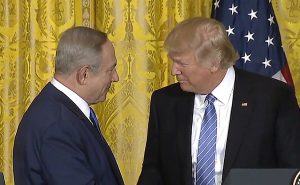
The investment in question is of course the pressure it has been bearing on its staunchest ally America and by ricochet Europe. This pressure took the form of diplomatic contacts and wheeling and dealing on various important circles in America and elsewhere and the public threat of striking Iran solo.
Realizing the dangers it is risking and putting the survival of the regime as a priority, Iran is ready to give up on its nuclear dreams and settle for some sort of promise of playing the role of regional power instead of Saudi Arabia whose ambitions have been dashed by the new regional arrangements put together by the American power broker.
As result, Israel is winning on all fronts: it is obliging Iran to give up its nuclear ambitions and disarm without having to go on war and face the dire consequences of such an act. It has succeeded in reducing Saudi Arabia to its normal size and by so doing reduce the Arab governments to a bunch of protégé nations grappling with internal uprisings of disgruntled citizenry aspiring for democracy and better living conditions.
Thanks to the so-called Arab Spring, Egypt, the only Arab power capable of being a match to Israel in the region is out of the course for decades to come. As result, Israel wins again the jackpot: disarmament of Iran, power reduction of the Arabs, stability in the region and peace. Now it will devote its time and energy to the achievement of peace with the Palestinians on its own terms and conditions, because Hamas, deprived of the support of the Muslim Brotherhood in Egypt and the military assistance of Tehran, will soon crumble down and Abbas will emerge as the savior of the Palestinian people and will create a state under the protection of Israel.
Final Casting And Final Word
The Sykes-Picot arrangements and accord are now a thing of the past; long live the Greater Middle East born on the sketch pad of George Bush Jr. and taking life as a super production blockbuster under the direction of Obama. This film, unless it is scrapped by Donald Trump and the chances are he will do, ushers in a new kind of production where the hero is not the real hero. The casting is a follows:
- The narrator of the film is Israel that sets the tone to everything in the film with a voice off;
- The hero is Iran in appearance only, but not in the reality of the film;
- The Arabs will have to content themselves with second fiddle role, no more because in spite of the money and the resources and the expanses of land, they are still tribal and backwards oppressing their people and shunning true democracy.

